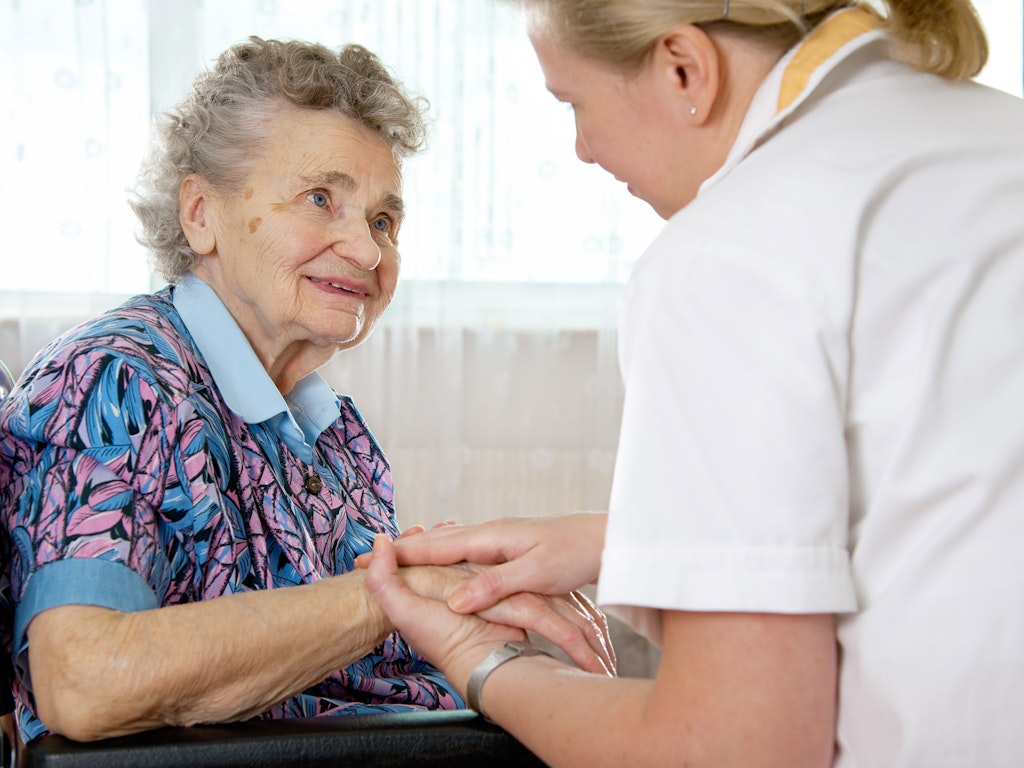Health of aged care residents could be at risk according to Senate inquiry submission
Concerns for the quality of care and wellbeing of aged care residents is at the heart of a recent submission put forward by the Australian Medical Association (AMA) to the Senate Community Affairs References Committee.

AMA members concerned that aged care staff are requesting sedation of residents so they are easier to handle (Source: Shutterstock)
The inquiry comes as a referral by the Senate for inquiry and report in response to the reported incidents in the Makk and McLeay Aged Mental Health Care Service at Oakden in South Australia.
In their submission to the inquiry, the AMA reports that the proportion of registered and enrolled nurses in aged care is decreasing, that low staffing levels are the main cause of missed care, and that many aged care staff are under-trained in issues facing the elderly, which has been suggested can result in an increase in medication use.
“Many aged care staff do not have the appropriate training to properly handle the major issues facing the elderly, such as behavioural conditions, falls prevention, pressure sore prevention, and pain management…we have been informed that this can lead to an increase in medication use,” the submission states.
The submission goes on to state that some AMA members are also “concerned that aged care staff are requesting sedation of residents so they are easier to handle”.
AMA Vice President Dr Tony Bartone says that what was included in the submission are all points the organisation has made previously, reiterating that they are not newly arising issues in the aged care sector.
“For too long this sector has been put in the too hard basket or overlooked,” he says.
“It’s time things improved in this area and that issues were followed up.
“It’s time that the attention this sector deserves begins to occur.”
As well as highlighting the reduction in nursing numbers, the submission states AMA members have also “reported cases where registered nurses are being replaced by personal care attendants, and that some residential aged care facilities do not have any nurses staffed after hours”. The Australian Nursing and Midwifery Federation (ANMF) have also raised these concerns.
“In Queensland, we’ve recently seen 11 enrolled nurses sacked, with the provider then advertising positions for carers who only need a first aid certificate with the expectation they will administer medications to elderly residents with as little as six hours pharmacology education,” ANMF Federal Secretary Lee Thomas says.
“This is totally unacceptable, as many nursing home residents have complex care needs and medication regimes, which only qualified nurses can be expected to properly manage.
“It is not possible to comprehend and be competent in safe medication administration after just six hours of education.”

The Aged Care Complaints Commissioner manages Government funded services, and has also made a submission to the Senate Community Affairs References Committee, which provided information on complaints the office had received regarding medication administration.
“Some of the complaints we receive about personnel would relate to issues such as the failure to have rostered Registered Nurses on staff overnight which we would manage with the service provider,” a spokesperson for the Aged Care Complaints Commissioner says.
“Obviously the complaints we receive give us some insight into the current issues within the aged care sector and we use these insights to improve services through education.”
In relation to the number of issues presented in the submission and the concerns it raises, Dr Batone says that we need look no further than recent media coverage.
“We have had numerous recent media coverage of examples of how things can go seriously wrong in this area,” he explains.
“It’s unacceptable and should not be occurring in a Australian society with the technological advances we have.”
The committee has reportedly received approximately 46 submissions from relevant state and federal government agencies, aged care providers and their representative organisations, advocacy groups, medical and allied health practitioner groups, aged care workers and, significantly, a number of family members of patients in aged care.
A public hearing is scheduled to take place in Adelaide on Tuesday 21 November 2017, with the reporting date announced for 18 February 2018.























